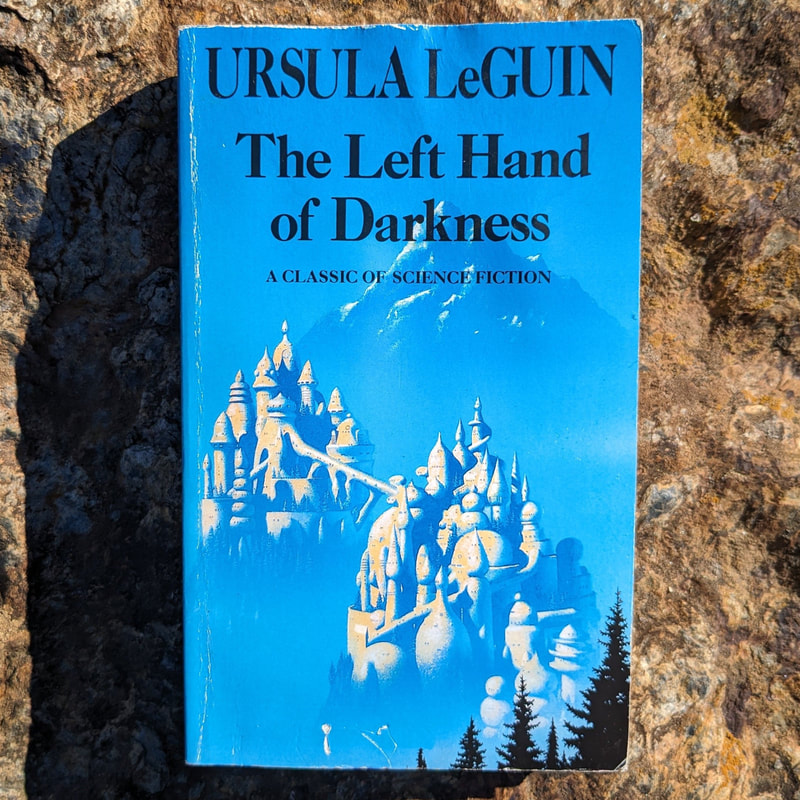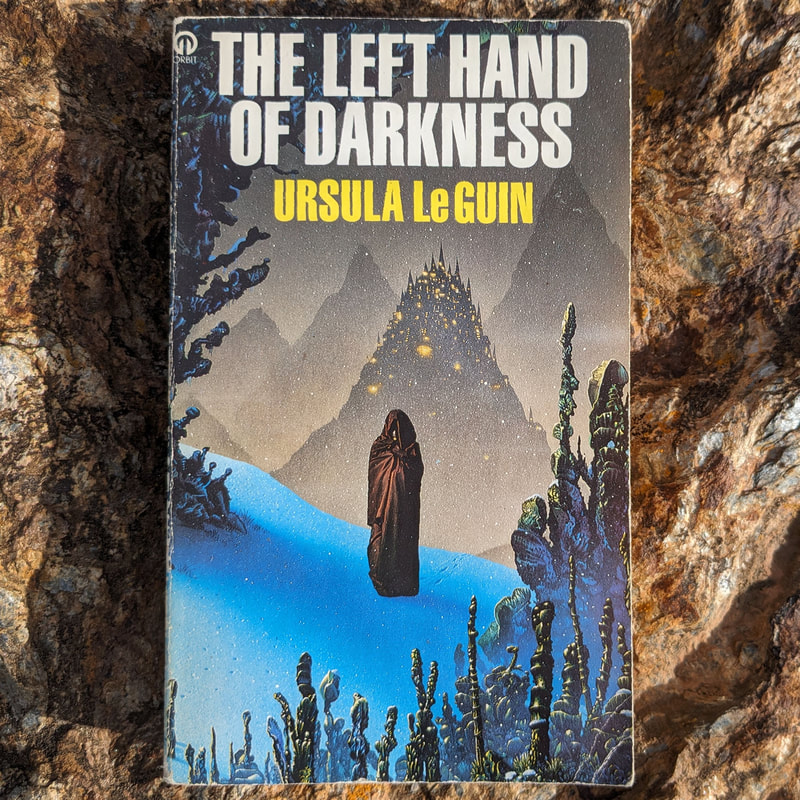 I love this book with all my heart. I am not much of a one to reread books, but I know that I will always return to The Left Hand of Darkness because it has that certain strangeness that speaks of home.
Genly Ai treads with respect, gentle irony and some trepidation–because of real risk to his physical safety–among the Gethenians of the planet Winter. As a Hainish man, he struggles to deal with the permanent icy cold and the volatile ambisexuality of the otherwise archly conservative race. The narrator has been sent to the planet to assess and invite its people to join the league of worlds known as the Ekumen. The unmitigated bleakness of Winter complements Genly’s unembellished style as he compiles his mission report. The harsh conditions and a mistrust shared by the proud inhabitants mean that he never feels truly comfortable and a tension obtains that is felt throughout the account. Like a musical string taughtened, it plays and can be plucked, but it might equally snap. Genly’s candid report fascinates for being as subjective as it is objective: for being whole. He struggles to assimilate the––to him––bizarre sexual gender fluidity of the Gethenians and which causes them to switch between male and female. It undermines Genly’s capacity to act. He cannot rely on a constant, gender-based response to his self-identity, which he recognizes is based on his own maleness, since the natural parameters of sexual behaviour and interaction are utterly changeable. “A man wants his virility regarded, a woman wants her femininity appreciated, however indirect and subtle the indications of regard and appreciation. On Winter they will not exist. One is respected and judged only as a human being. It is an appalling experience.” The more he investigates and the longer his stay, the more the emissary/observer will be drawn into events. Ostensibly the representative of a more advanced and magnanimous civilization (in this, the Ekumen has a significant parallel with Iaian M. Banks’s “Culture”), Genly Ai feels increasingly unsympathetic and alienated, despairing of his one potentially promising contact, the reserved and unreadable Estraven. Yet it will be Therem Harth rem ir Estraven who proves to be the great reward to anyone who reads Le Guin’s singular tale. Estraven’s melancholic taciturnity is evidence of that carefulness of honesty which prefers silence to inauthentic speech, or to seeking advantage. “To oppose vulgarity is inevitably to be vulgar. You must go somewhere else; you must have another goal; then you walk a different road.” He-she is also wary of the considerable risk they are taking in befriending Ai, not only politically. “A profound love between two people involves, after all, the power and chance of doing profound hurt." “The unexpected is what makes life possible,” says the Gethenian, and it is through the character of Estraven that a revelation will come to Genly Ai. He will see the love that is unfathomable power able to be opposites at once. The left hand and the right are distinct and conjoined. “Fear, courage. Cold, warmth. Female, male. It is yourself, Therem. Both and one. A shadow on snow."
0 Comments
Leave a Reply. |
Blogging good books
Archives
July 2024
Categories |

 RSS Feed
RSS Feed
